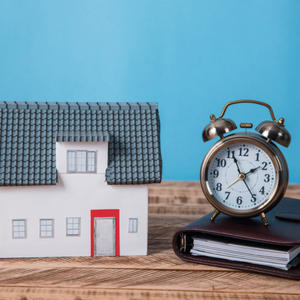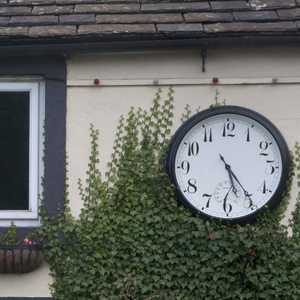
When it comes to selling a home, most people focus on maximizing just their profit. While that’s definitely important, what often gets overlooked is how long you’ve owned the home before deciding to sell–a factor which can significantly affect your overall bottom line. This holds true in Fayetteville, NC, just as it does anywhere else.
In this article, we’ll explain why the length of home ownership matters, the factors that influence when to sell, and how to time your sale in Fayetteville for the best possible income. In fact, Fair Cash Offers For Homes can guide you through these decisions to help you maximize your returns.
Real Estate Market Overview in Fayetteville, NC
So, you live in Fayetteville, NC, or you’re thinking about moving there, and you’re wondering whether buying a home in the area is a smart investment in the long run. The good news is, Fayetteville’s housing market continues to show strong signs of growth and appreciation. It’s safe to say that buying in Fayetteville is still a financially sound move.
As of now, the median home sale price in Fayetteville is $241,000, which represents a 2.6% increase year-over-year. To put that into perspective, the average home price across North Carolina is approximately $375,000, while the national average stands at $443,019. That’s nearly double the price of homes in Fayetteville, making it one of the more affordable, yet still appreciating, real estate markets in the country.
In short, Fayetteville offers an attractive combination of affordability and upward value potential, making it a compelling option for both first-time buyers and investors.
Currently, Fayetteville is considered a seller’s market. With a relatively low cost of living and a growing population, homes are being snapped up quickly. There are fewer available homes than there are buyers, which creates strong demand. This imbalance can drive prices up, especially for properties that are well-maintained, competitively priced, and located in desirable neighborhoods.
If you’re thinking about selling, now could be an ideal time. With limited inventory and high buyer interest, you may find yourself in a favorable position, possibly even fielding multiple offers or starting a bidding war. You can also choose a faster option and sell your home for cash in Fayetteville or nearby cities, making the process simpler and stress-free.
And if you’re a buyer, it’s still an excellent time to invest, before prices climb further as demand continues to rise along with economic and infrastructure growth in the area.
How Long Should You Live In Your Property Before Selling?

In real estate, you may have heard about the “five-year rule.” While it’s not a strict requirement, it’s a useful guideline for homeowners to consider.
Generally, it’s recommended that you stay in your home for at least 5 years before selling. This time frame allows you to build equity, pay down a significant portion of your mortgage, and (ideally) benefit from property appreciation. It also helps you recover the upfront costs of buying a home, such as your down payment, closing costs, and moving expenses.
However, according to recent statistics, most homeowners end up staying in their homes for 10 to 13 years prior to selling. That makes sense as buying a home is a major commitment, and most people don’t go through the process just to move again in a few short years.
If you’re not in a rush, the longer you hold onto your home, the more likely you are to benefit from increased appreciation and higher return on investment.
So, while five years is often seen as the minimum time to make selling financially worthwhile, holding on to your home longer can lead to even better results, especially in a growing market. You also have the option to sell your home for cash in Hope Mills or nearby cities, giving you a quicker and more convenient way to close the deal.
Why The 5-Year-Rule Works
The 5-year rule is a common guideline in real estate and for good reason. It’s based on two important financial benefits:
1. Time to Build Equity and Appreciation
Staying in your home for at least five years gives you time to pay down your mortgage, build equity, and benefit from national home appreciation. On average, real estate appreciates at about 3% -5% per year nationally (depending on the market), so holding onto your property longer generally increases the value.
2. Eligibility for Capital Gains Tax Exemption
The IRS allows homeowners to exclude up to $250,000 or $500,000 for married couples filing jointly. in capital gains when selling their primary residence, as long as they have lived in and owned the home for at least two out of the last five years. While the rule only requires a minimum of two years, many use the 5-year guideline as a buffer to maximize equity gains and ensure they meet the full IRS requirement comfortably.
Short vs. Long Term Capital Gains Tax Exemption in Home Selling
While some states don’t impose income or capital gains taxes, sadly, North Carolina is not one of them. That’s why understanding how the capital gains taxes work, especially for homeowners in areas like Fayetteville, is crucial before selling.
Capital gains are the profits you make from selling certain assets, such as real estate, stocks, or other investments. They are classified in two ways:
Short-term Capital Gains Tax: applies when you sell a home or any asset that you’ve owned for one year or less. They are taxed like regular income, which means higher tax rates and no tax breaks.
Long-term Capital Gains Tax: applies when you sell an asset that you’ve owned for more than one year. They are taxed more favorably with tax brackets at 0%, 15%, or 20% depending on your income level. You may also qualify for potential tax exemptions and exclusions as long as you meet certain requirements.
Of course, you don’t want your home to be classified as a short-term gain because you’ll pay more in taxes, lose the benefit of tax breaks, and go without the protection of a home sale tax exemption. But when you own your home long enough, you may qualify for a huge tax break on the profits from your sale.
Let’s say your property increased in value by $600,000 and you sold it at such. If you’re married and filing jointly, you could exclude up to $500,000 in capital gains, so you’d only be taxed on the remaining $100,000 or possibly nothing at all if your sale price doesn’t reach the threshold.
In summary, here are the requirements to get the capital gains tax exemption:
- It is your primary residence.
- Ownership Rule: You must have owned the home for at least 2 out of the last five years before selling.
- Habitation Rule: You must have lived there for at least 2 of the last 5 years (it doesn’t have to be consecutively).
- Exclusion Frequency: You have not used this exemption on another home sale within the last 2 years.
What Happens If You Sell Before Five Years?
Selling your home before the five-year mark can cost more than you think, both in terms of profit and potential taxes.
If you still have a mortgage, the proceeds from the sale will go to your lender first. Only the remaining balance (if any) comes to you. In many cases, especially within the first 3 years, you’ve barely built up any equity, and your home may not have appreciated enough to cover closing costs, real estate agent fees, and other purchase-related expenses.
If the market is slow or property values have dropped, you might end up selling at a loss or even have to bring money to the closing table to pay off the rest of your loan–the worst-case scenario in a rushed home sale. A slightly better but still less than ideal outcome is simply breaking even.
Additionally, if you haven’t lived in the home for at least two of the last five years, you may be subject to capital gains tax on any profit from the sale.
Paying off your mortgage
Building real equity
Benefiting from market appreciation
Qualifying for the capital gains tax exclusion
Breaking even or walking away with a solid profit
While selling a home early isn’t always a bad idea, waiting at least five years gives you a better shot at:
Unless you’re in a hot market or your property has significantly increased in value, the five-year rule is a smart benchmark to follow for most homeowners.
Before Selling Early, Consider Renting It Out
If you’re not quite ready to sell, or the market just isn’t where you wanted it to be, renting out your home could be a smart move that buys you time and puts some money back in your pocket.
Generate rental income, making your home financially productive
Hold onto the property longer, increasing your chance for market appreciation
Stay within the IRS’s 2-out-of-the-5-year window, so you still qualify for the capital gains exemption when you do sell
Let’s say you’ve already lived in your home for a while, but you’re not sure if now is the best time to sell. Maybe you recently came into some extra income, like a bonus, and can afford to move without having to sell right away. In that case, keeping your current home as a rental could let you:
Just keep in mind: If you’ve lived in and owned the home for 2 years, once you move out, you typically have up to 3 years to sell and still keep certain tax advantages, as long as you meet the other general criteria set by the IRS.
If you’re not in a hurry, renting out your home for a year or two can be a smart way to make your property work for you now while setting yourself up for a more profitable and tax-efficient sale in the future.
How to Know Your Home’s Value
Thinking about selling your home, whether it’s been five years or less, and wondering if it’s the right time? A great place to start is by understanding your home’s current market value.
One of the easiest ways to do this is by checking what similar homes in your neighborhood have recently sold for. Look at listings online to find comparable properties, often called (“comps”).
Pay attention to:
The condition of the homes
The location relative to yours
Any upgrades or renovations (if your home has some high-value improvements, it could be worth more)
For example, if your home is on the same street as a comparable one but has a better view, updated kitchen, or finished basement, it might be valued higher.
You can also reach out to a local real estate agent. Most offer free consultations and can give you a realistic estimate based on market trends and buyer demands in your area.
If you want to sell fast, though, you can also consult with a home-buying company (like ours), which can usually send a cash offer within 24 hours.
Knowing your home’s value is the first step in deciding whether selling now makes sense for your financial and personal goals.
How To Know If It’s A Good Time To Sell?
If you’re considering selling your home shortly after buying it, it’s usually due to unexpected life changes: a job promotion, a family emergency, or a change in personal circumstances. The truth is, selling a home is a deeply personal decision, and the right timing depends on your goals, your circumstances, and the current market.
When Selling Quickly Makes Sense

If you need to relocate immediately for a new job or a family obligation, waiting five years simply isn’t realistic. In these cases, selling early may be unavoidable–and that’s okay. Your decision is about what’s right for your life and not just what’s ideal on paper.
Another instance when selling early is a good option is when the market dictates the timing. Sometimes, the best time to sell is when the market is booming. If home values in your area are at an all-time high and selling now would help you not only recover your investment but also walk away with a solid profit, it could make sense to move forward even if it’s earlier than planned.
When Waiting Might Be Smarter
On the other hand, if you have some flexibility and aren’t in a rush, waiting a bit longer can work in your favor, especially financially. For example:
If you’ve owned your home for two years but only lived in it for one, staying one more year could help you qualify for capital gains tax exemptions.
If the market is expected to grow in the next year or two, waiting would help you build more equity and sell for a higher profit.
There’s no one-size-fits-all answer to when you should tell your home. Whether you’ve been there for one year or ten, the right time to sell depends on your life circumstances, your financial goals, and the state of the housing market.
If you’re unsure, talk to a local real estate professional who can help you weigh your options and decide what is best for your unique situation.
Tips To Successfully Sell Your Home Anytime While Maximizing Your Profits
Keep Track of Your Capital Improvements
If you’ve made an upgrade to the property, like a kitchen renovation, room addition, or a new patio, be sure to keep your receipts and documentation. These capital improvements can be added to your home’s cost basis, which lowers your taxable gain when you eventually sell. The more improvements you can legally count, the less capital gains tax you may owe.
Make Low-Cost But High-Reward Repairs
Major renovations can be expensive, time-consuming, and may eat into your profits. The truth is, they’re not always necessary to sell your home. Instead, focus on low-cost upgrades that offer big returns. A fresh coat of paint, fixing broken windows or door handles, and boosting curb appeal with some light landscaping or extra cleaning can go a long way. These smaller, budget-friendly updates can dramatically improve your home’s appearance and make it more attractive to buyers without draining your wallet.
Set The Right Price From Day One
Pricing your home incorrectly is one of the easiest ways to hurt your potential profit. If you overprice it, you risk scaring off serious buyers. If you underprice it, even though your home is in great shape, it can raise a suspicion that something is wrong with the property. The goal is to price your home just right: high enough to give you a solid return, but competitive enough to draw interest and leave room for negotiation. Striking this balance early on gives you a better chance of a faster, smoother sale and helps you avoid sitting on the market too long or settling for less than what your home is worth.
Be Strategic About Your Sale
Whether you’re selling your home in five years or sooner, the timing of your sale can affect how successful and profitable it is. The best time to sell is typically in the spring or early summer, between May and July, when buyer activity peaks. However, not everyone has the luxury of waiting for the perfect season. If you’re selling in the off-season, like fall or winter, you’ll just need to lean into smart strategies like high-quality marketing, professional photos, and possibly offering incentives to attract buyers. The real estate market is open year round, so homes can sell at any time. It’s really about how you prepare.
Align Your Goals With Your Preparation
One thing many homeowners overlook is aligning their goals with how they approach the sale. Before you list, ask yourself what your main goal is. Are you trying to sell us as quickly as possible? Are you looking to get top dollar even if it takes longer? Your answers shape how you move forward.
For example, if speed is your goal, listing the traditional way might not be the best fit, since the average home takes about 50 days to sell, not including the prep time. Or maybe you’re selling in the winter because of an unexpected life change. In that case, make sure your home feels warm, cozy, and inviting so buyers feel comfortable the moment they walk in. When your strategy matches your goals, you’re more likely to have a sale that works in your favor.
Final Thoughts: How Long to Live in a House Before a Home Sale in Fayetteville, NC

Whether you’re planning to list your home soon or you’re a first-time buyer simply thinking ahead, understanding the timing of a home sale is key. The five-year rule is a helpful guide that many homeowners follow, especially when it comes to maximizing profits and minimizing taxes.
Selling a home involves juggling a lot of moving parts, such as sales expenses, taxes, mortgage payoff, market conditions, home equity, and the financial plans for your next move. On top of all that, you have to make sure you walk away with a solid profit.
While there’s no exact formula for a perfect sale, success really comes down to planning ahead and aligning your decisions with your unique circumstances. The more prepared you are, the smoother the process will be and the better your chances of selling on your own terms.
Want to sell your home fast for cash?
Sell directly to a trusted local cash home buying company: Fair Cash Offers For Homes. We specialize in purchasing homes in any condition or situation. Whether your property needs major work or you’re just looking for a hassle-free sale, we’ve got you covered.
Homeowners choose us because we offer:
No commission or hidden fees
No repairs or renovations needed
No cleaning or staging required
A fast, stress-free closing on your timeline
By working with us, you skip all the things that typically make selling a home expensive, time-consuming, and stressful.
Interested? Contact us today at (919) 551-8506 or fill out the short form below to get a free, no-obligation cash offer!
Helpful Fayetteville Blog Articles
● Strategies For Selling A Hoarder’s House In Fayetteville, NC
● Selling A Foreclosure Home In Fayetteville, NC
● Selling Your Fayetteville, NC, Home By Owner
● Seller Responsibilities For Closing Costs In Fayetteville, NC
● Inheriting A House With Siblings In Fayetteville, NC
● How Long To Live in a House Before Selling In Fayetteville, NC
● Cost Of Asbestos Removal In Fayetteville, NC
● Best and Worst Neighborhoods in Fayetteville, NC
● Top Fayetteville, NC, Property Managers by Leading Experts
● Is Fayetteville, NC, a Good Place to Live?
● Fayetteville, NC Neighborhood Map
● Fun Free Things to Do in Fayetteville, NC

